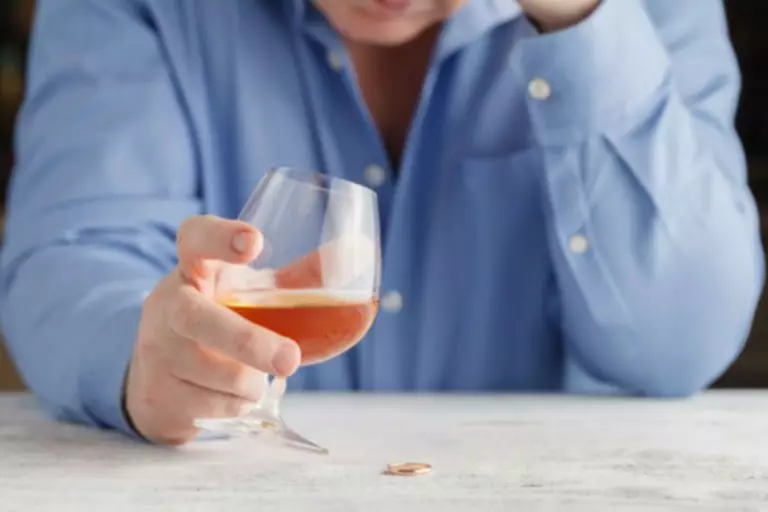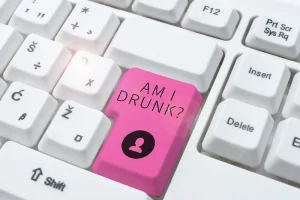
If you can control and stop your drinking, and alcohol is not causing any negative consequences, moderate drinking is considered a part of a healthy lifestyle. There are a few telltale signs that you might need to adjust your approach to social drinking to semi or full sobriety. Social drinking and alcoholism are different patterns of alcohol consumption.

What is considered 1 drink?

Slingerland is a professor at the University of British Columbia who, for most of his career, has specialized in ancient Chinese religion and philosophy. In a conversation this spring, I remarked that it seemed odd that he had just devoted several years of his life to a subject so far outside his wheelhouse. He replied that alcohol isn’t quite the departure from his specialty that it might seem; as he has recently come to see things, intoxication and religion are parallel puzzles, interesting for very similar reasons. As far back as his graduate work at Stanford in the 1990s, he’d found it bizarre that across all cultures and time periods, humans went to such extraordinary (and frequently painful and expensive) lengths to please invisible beings. This mutation occurred around the time that a major climate disruption transformed the landscape of eastern Africa, eventually leading to widespread extinction. In the intervening scramble for food, the leading theory goes, our predecessors resorted to eating fermented fruit off the rain-forest floor.
- I was most inspired, though, by his willingness to allow the data to inform our positions, even in cases in which new results did not support the findings of his earlier studies.
- Additionally, interventions that teach students to monitor and assess their alcohol consumption can lead to safer drinking behaviors.
- No matter what form of alcohol you drink, if you have trouble cutting down or stopping and your drinking has negative consequences in your life, you likely have a problem with alcohol.
Questions About Treatment?
- Understanding the historical context of social drinking provides valuable insights into current drinking practices' cultural and social underpinnings and the potential for future shifts in consumption patterns.
- Ria Health offers alcohol treatment from the comfort of your home through a smartphone app, including anti-craving medications and weekly coaching meetings.
- Empirical studies show that targeted alcohol marketing results in individuals developing positive beliefs about drinking, and creating and expanding environments where alcohol use is socially acceptable and encouraged (Alaniz and Wilkes 1998; Hastings et al. 2005; McKee et al. 2011).
- Stunningly, the health toll of social disconnection is estimated to be equivalent to the toll of smoking 15 cigarettes a day.
- It also includes binge drinking — a pattern of drinking where a male has five or more drinks within two hours or a female has at least four drinks within two hours.
The NIAAA defines binge drinking as consuming 4 or more drinks in a 2-hour period for women and 5 or more drinks in a 2-hour period for men. The U.S. government’s Dietary Guidelines for Americans recommends avoiding alcohol but says that for people who do drink, men should limit themselves to two alcoholic beverages per day, and women should limit themselves to one. Grey drinkers don't show the usual symptoms of alcohol abuse but often struggle with knowing when to stop drinking during social situations and often suffering from the dreaded 'hangxiety'. Magnified Health Systems aims to improve the quality of life for people struggling with substance use or mental health disorder with fact-based content about the nature of behavioral health conditions, treatment options and their related outcomes. We publish material that is researched, cited, edited and reviewed by licensed medical professionals. The information we provide is not intended to be a substitute for professional medical advice, diagnosis or treatment.

Do Alcoholics Ever Safely Become Social Drinkers?
The course was structured over 11 weeks and I was put in a small group for online meetings. I didn’t have to go cold turkey; on this course, you https://ecosoberhouse.com/ start out drinking with the aim of cutting back. I began extending the amount of alcohol-free days I had from two, to three, to four, then five.

How Many Americans Consume Alcohol Socially?
- The studies suggest that certain individuals are particularly sensitive to alcohol’s socially reinforcing effects and possibly for different reasons.
- Alcohol is available everywhere, from bars and restaurants to people’s homes.
- “These rodent studies paint a complex picture of how alcohol impacts the heart,” said Tadwalkar, who was not involved in these studies.
- People in the next decile consumed, on average, 15 drinks a week, and in the one below that, six drinks a week.
The idea that alcohol might be consumed to improve our darker moods has been apparent to poets, writers, and philosophers for millennia (Sayette, 1999a). Initial studies found that when intoxicated, animals—as diverse as rats and cats—experienced reduced experimental “neuroses” or conflict (Conger, 1951; Masserman & Yum, 1946). These data led to the development of what eventually became known as the tension reduction theory (TRT) (Cappell & Herman, 1972; Conger, 1956). Alcohol’s putative effects on tension reduction became a core feature in Conger’s (1956) theory of alcoholism. Moreover, these tension-reducing properties were thought to underlie the disinhibition of a multitude of activities (e.g., aggressive or sexual behavior), suggesting even broader implications (Wilson, 1988a). Societal influences can shape drinking behavior among immigrants to the United States.
A Family History of Alcoholism
From ancient times to the colonial settlers to today, beer, wine, and spirits signify friendship and connecting with others in social settings. Excessive social drinking can lead to problem drinking and, if more severe and sustained, to alcoholism. In the meantime, it can also have a lot of negative social drinking and drinking problem short- and long-term consequences. Distilled alcohol is recent—it became widespread in China in the 13th century and in Europe from the 16th to 18th centuries—and a different beast from what came before it. Fallen grapes that have fermented on the ground are about 3 percent alcohol by volume.

